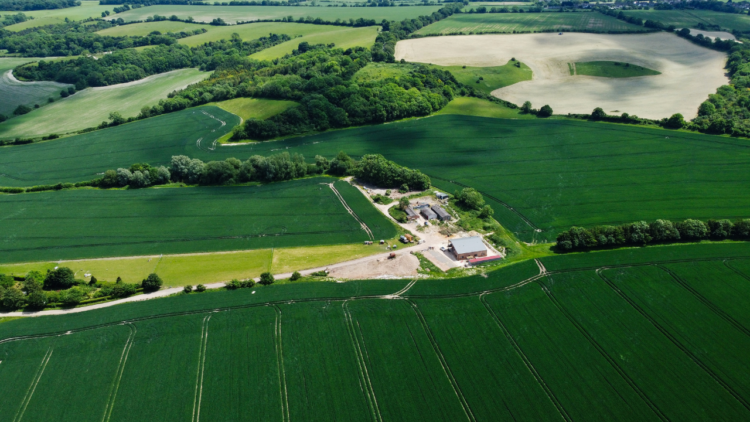Farmland investing is suitable for high-net-worth investors who have long-term investment horizons of greater than five to six years and/or those looking for investments for the financial well-being of future generations.
Why invest in
Farmland?
Stable Long-Term Investment
Farmland has traditionally been a stable investment. The world needs more food as populations grow, and they’re not making any more farmland, so the existing farmland must become increasingly productive, making it more valuable.
Best Soil and Weather
Regions like southwestern Ontario are known for having some of the best soil in the world combined with favourable weather conditions, including an abundance of rainfall, deep rich soil and proximity to large urban markets.
Large Farming Corporations Prefer to Rent
There has been a major shift from farms being owned by families to ownership by larger farming corporations due to the availability and expense of advanced technology farm equipment. Many corporations can’t afford to buy all the land required to build a successful farming operation, so they choose to rent the land.
Value Add Opportunity
Property managers can focus on protection of the land and soil through proper crop rotation and add value by reclaiming land from redundant buildings, poor drainage, etc.
Environmental Benefits
Proper management of farmland has environmental benefits through sustainable farm practices and protection from urban sprawl.
Exit Opportunity for Family Farmers
Family farmers live their lives asset rich and cash poor. Investing in farmland allows farmers to sell portions of their farm to purchase needed equipment or to enhance their lifestyle or retirement.
Non-Correlated Asset
Farmland is not correlated to financial assets which allows investors better diversification.
Risks & Volatility
Understanding risks and volatility is critical to being successful investing in both public and private markets and both share similar risks, but others are quite different.
- Manager Risk
- There is always the possibility that a manager may make a series of bad investments or allow self-interest to put investment capital at risk. Through our due diligence and manager selection process, we work to minimize this risk.
- Liquidity Risk
- Investments in Farmland are less liquid than traditional investments, such as publicly-traded equities and bonds.
- Investors may have limited options to sell their shares or exit the investment before the end of the investment term.
- Private funds can be “gated” (investors may be restricted or limited in their ability to add or withdraw funds) mostly due to high volumes of redemptions during short periods of time, which can last for long periods of time. This has happened when the reputation of the fund or manager comes into question or when significant losses are experienced.
- This lack of liquidity could result in challenges if you need to access your capital unexpectedly.
- Valuation and Transparency
- Farmland is not subject to the same level of regulatory oversight and reporting requirements as publicly-traded REITs.
- This can lead to challenges in accurately valuing the underlying real estate assets and a lack of transparency regarding the financial performance and operations.
- Limited Exit Options
- Exiting a Farmland investment can be more complex and restricted compared to publicly-traded REITs.
- There might be restrictions on selling your shares to other investors, and the process could be subject to certain limitations or conditions, potentially impacting your ability to realize returns on your investment.
- To mitigate these risks, thorough due diligence and partnering with experienced management teams are essential.
- Volatility
- Private investments, such as private debt and equity, are not traded on public exchanges. Their valuation and trading occur less frequently and are often based on third-party valuations. This is advantageous as it removes investor stress caused by volatility of publicly traded securities but investors should understand and be comfortable with pricing mechanisms.
Liquidity
- Farmland is an illiquid investment so buyers need to be prepared to hold these investments for a minimum of five to six years although some options may allow more flexible liquidity.
- Some potential liquidity is available in years 4, 5 and 6 but a discount to the Net Asset Value will be applied.
- Net asset valuations are calculated annually.
Potential Returns
- Every investment has many moving parts so predicting the future should be used for estimation purposes only.
- Based on information from Farm Credit Corporation, $100,000 would have appreciated to $632,150 (8.34% annualized) between 1999 and the end of 2022. According to YCharts, the S&P 500 would have appreciated to $404,570 (6.26%annualized) and the TSX 60 Index $428,650 (6.53% annualized).
Taxation
Capital gain on disposition but may qualify for Lifetime Capital Gains exemption. Always check with your accounting professional.


